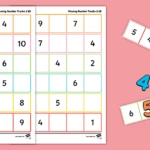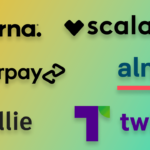Now Reading: Your Guide to Becoming a Successful Probationary Engineer
-
01
Your Guide to Becoming a Successful Probationary Engineer
Your Guide to Becoming a Successful Probationary Engineer

Starting a new job is both exciting and a little nerve-wracking.# Your Guide to Becoming a Successful Probationary Engineer
Starting a new job is both exciting and a little nerve-wracking. This is especially true when you begin your career as a probationary engineer. This role is your bridge from academic learning to real-world application, a critical period that shapes your professional future. It’s a time to learn, grow, and prove that you have what it takes to become a valued member of an engineering team. Think of it as the ultimate on-the-job training experience.
This guide will walk you through everything you need to know about the probationary period. We’ll cover what the role entails, what your employer expects, and how you can navigate this phase to secure a permanent position. By the end, you’ll have a clear roadmap for turning your probationary status into a successful, long-term career.
Key Takeaways
- A probationary engineer is a newly hired engineer undergoing a trial period to assess their skills, work ethic, and cultural fit.
- This period typically lasts between three to six months but can vary by company and industry.
- Success depends on a combination of technical ability, soft skills like communication and teamwork, and a proactive attitude toward learning.
- Key goals during probation include understanding company culture, meeting performance expectations, seeking feedback, and building professional relationships.
- Successfully completing this period leads to a permanent position and opens the door to future career growth and development.
What Exactly Is a Probationary Engineer?
A probationary engineer is an entry-level professional who has recently graduated and joined a company on a trial basis. This “probationary period” is a standard practice in many industries, not just engineering. It serves as an extended interview, allowing both you and the employer to see if the fit is right. For the company, it’s a chance to evaluate your practical skills, how you handle tasks, and how well you integrate into the team. They want to confirm they made the right hiring decision.
For you, this period is a golden opportunity. It’s your chance to apply theoretical knowledge to real projects, learn the company’s specific processes, and understand the industry’s demands. You are not expected to know everything. In fact, your managers anticipate a learning curve. Your primary role is to absorb information, ask intelligent questions, demonstrate a strong work ethic, and show your potential to grow into a competent, independent engineer. This phase is less about immediate perfection and more about demonstrating progress and commitment.
The Purpose of the Probation Period
The probationary period is a mutually beneficial arrangement. From the employer’s perspective, it minimizes the risk of a bad hire. Bringing a new employee on board is a significant investment of time and money. This trial phase ensures that the new probationary engineer possesses the technical aptitude, problem-solving skills, and interpersonal abilities required for the job. It allows managers to observe your performance in a real-world setting before committing to a long-term contract.
From your perspective as the employee, probation is just as valuable. It gives you a firsthand look at the company culture, the nature of the work, and the team dynamics. Is the work as interesting as you hoped? Do you connect with your colleagues? Does the company’s mission align with your personal values? This period gives you the chance to answer these questions. It’s an opportunity to decide if this company is the right place for you to build your career, all while gaining invaluable hands-on experience.
Common Responsibilities and Duties
As a probationary engineer, your day-to-day tasks will be designed to expose you to various aspects of the engineering workflow. While specific duties vary widely depending on the field—be it civil, mechanical, software, or electrical engineering—some common responsibilities apply across the board. You will likely start with smaller, well-defined tasks under the close supervision of a senior engineer or mentor. This could include assisting with technical drawings, running simulations, writing or debugging small pieces of code, or collecting and analyzing data.
Your responsibilities will gradually increase as you demonstrate competence. You might be asked to contribute to larger projects, prepare technical reports, participate in team meetings, and present your findings. A key part of your role is learning the company’s standards, software, and procedures. You’ll spend a significant amount of time shadowing experienced colleagues, asking questions, and absorbing as much information as possible. The goal is for you to become a productive and contributing member of the team by the end of your probation.
Examples Across Different Engineering Fields
To give you a clearer picture, let’s look at what a probationary engineer might do in different specializations.
- Software Engineering: You might start by fixing minor bugs in an existing application, writing unit tests for new features, or documenting code. As you progress, you could be tasked with developing a small feature or module under the guidance of a senior developer.
- Civil Engineering: Your initial duties could involve performing site inspections, helping with land surveys, or using CAD software to make minor edits to blueprints. Later, you might assist in creating structural calculations or drafting parts of a project proposal.
- Mechanical Engineering: A probationary role may begin with creating 3D models of individual components, running stress analysis simulations, or helping to assemble and test prototypes in a lab. Eventually, you could contribute to the design of a larger mechanical system.
- Electrical Engineering: You could start by assisting with the layout of printed circuit boards (PCBs), testing electrical circuits, or drafting wiring diagrams. Over time, you might be given responsibility for designing a small sub-circuit for a larger device.
Setting Yourself Up for Success
Thriving as a probationary engineer goes beyond just completing your assigned tasks. It’s about adopting a mindset of continuous improvement and proactive engagement. Your employer is watching for potential, not just performance. They want to see that you’re eager to learn, adaptable, and a positive addition to the workplace. One of the most important things you can do is to listen more than you speak, especially in the beginning. Pay close attention in meetings, during training sessions, and when receiving instructions.
Another key to success is staying organized. Keep detailed notes, manage your time effectively, and track your progress on tasks. This not only helps you stay on top of your work but also demonstrates professionalism and reliability. Don’t be afraid to ask for help, but always try to solve a problem on your own first. Documenting your attempts shows that you are a diligent problem-solver, not just someone who gives up easily. Finally, embrace the company culture. Participate in team activities, get to know your colleagues, and show that you’re happy to be part of the team.
Understanding Expectations: What Your Manager Looks For
Your manager has a checklist, both formal and informal, of what they hope to see from a probationary engineer. Technical skill is a given, but they are equally interested in your soft skills and overall attitude. They want to see that you are a quick learner, capable of grasping new concepts and applying them correctly. They are also looking for initiative. Do you wait to be told what to do, or do you seek out new tasks once you’ve completed your current ones?
Reliability is huge. Meeting deadlines, showing up on time, and communicating any potential delays are fundamental expectations. Your manager also wants to see how you respond to feedback. A successful probationary engineer is coachable—they listen to constructive criticism, learn from their mistakes, and don’t get defensive. Finally, they are evaluating your fit within the team. They want to hire someone who communicates clearly, collaborates well with others, and contributes to a positive work environment.
Key Skills to Develop and Showcase
During your probation, focus on developing and demonstrating a mix of technical and soft skills. These are the abilities that will make you an indispensable member of the team.
|
Skill Category |
Examples |
Why It’s Important |
|---|---|---|
|
Technical Skills |
Proficiency in relevant software (e.g., CAD, MATLAB, Python), data analysis, understanding of engineering principles. |
These are the foundational skills needed to perform your job’s core functions and produce quality work. |
|
Soft Skills |
Communication, teamwork, problem-solving, time management, adaptability, receiving feedback. |
These skills determine how effectively you work with others and navigate the professional environment. |
|
Proactive Attitude |
Asking for new tasks, seeking clarification, offering help to colleagues, suggesting improvements. |
This shows your engagement, initiative, and desire to contribute beyond your basic job description. |
Mastering these skills will not only help you excel as a probationary engineer but will also lay a strong foundation for your entire career. For more insights on professional development, you can explore resources like those found at https://forbesplanet.co.uk/.
Navigating the Challenges of Probation
The probationary period is not without its challenges. One of the most common is “impostor syndrome”—the feeling that you’re not as competent as others perceive you to be and that you’ll eventually be found out. It’s important to remember that almost every new graduate feels this way. You were hired for your potential, not because you’re already an expert. Acknowledge these feelings, but don’t let them paralyze you. Focus on your small wins and the progress you’re making each day.
Another challenge is a heavy workload or unclear expectations. You might feel overwhelmed by the amount of information you need to learn or confused about what your priorities should be. The best way to handle this is through open communication with your manager. Schedule regular check-ins to discuss your workload, clarify project goals, and ensure you’re on the right track. Don’t suffer in silence. A good manager will appreciate your honesty and work with you to find a solution. It shows you’re taking ownership of your success.
Common Mistakes to Avoid
As you navigate your role as a probationary engineer, being aware of common pitfalls can help you steer clear of them. Here are some mistakes that probationary employees often make:
- Being Afraid to Ask Questions: Fearing you’ll look incompetent, you might avoid asking for clarification. This is a huge error. It’s far better to ask a “silly” question than to make a major mistake because you didn’t understand something.
- Not Taking Notes: You will be flooded with information. Relying on memory alone is a recipe for disaster. Always have a notebook or digital document ready to jot down instructions, processes, and important details.
- Avoiding Feedback: Some people dread feedback sessions. Instead, you should actively seek them out. Constructive criticism is the fastest way to learn and improve.
- Working in Isolation: Don’t be an island. Engineering is a collaborative discipline. Make an effort to get to know your colleagues, offer to help, and be a team player.
- Making the Same Mistake Twice: Everyone makes mistakes. The key is to learn from them. When you’re corrected, make sure you understand why it was a mistake and how to avoid it in the future. Repeating errors shows a lack of attention or care.
The Role of a Mentor
A mentor can be your most valuable asset during your time as a probationary engineer. Many companies have formal mentorship programs where they pair new hires with experienced employees. If your company doesn’t, don’t be afraid to seek one out informally. A mentor is more than just a supervisor; they are a guide, a confidant, and a source of wisdom. They can help you navigate the unwritten rules of the company, provide technical guidance, and offer career advice.
Your mentor has been in your shoes. They understand the pressures and challenges you’re facing. Use them as a resource. Ask them about their career path, the mistakes they made, and the lessons they learned. A good mentor can provide context for the feedback you receive from your manager and help you set realistic goals for your probationary period. Building a strong relationship with a mentor not only helps you succeed in your current role but can also open doors for you later in your career.
How to Build a Strong Relationship with Your Mentor
A mentorship is a two-way street. To get the most out of the relationship, you need to be an engaged and prepared mentee.
- Be Respectful of Their Time: Your mentor is a busy professional. Always come to your meetings prepared with specific questions or topics you want to discuss.
- Be Proactive: Don’t wait for your mentor to reach out to you. Take the initiative to schedule meetings and send follow-up emails summarizing what you discussed.
- Be Open and Honest: Share your challenges and concerns. A mentor can’t help you if they don’t know what you’re struggling with.
- Follow Through on Advice: When your mentor gives you advice, make a genuine effort to implement it. Report back on your progress, whether it was successful or not. This shows that you value their input.
- Show Gratitude: Thank your mentor for their time and guidance. A little appreciation goes a long way in strengthening the relationship.
From Probationary to Permanent
The ultimate goal of your time as a probationary engineer is to be converted to a permanent, full-time employee. This transition is usually marked by a final performance review toward the end of your probationary period. In this meeting, your manager will discuss your performance, strengths, and areas for improvement. They will assess whether you have met the objectives set at the beginning of your probation.
If you have consistently demonstrated your technical skills, worked well with the team, and shown a positive and proactive attitude, the decision to hire you permanently is often a straightforward one. The conversation will then shift to your future at the company, including your official title, salary, and long-term career path. This is a moment to celebrate your hard work and dedication. You’ve successfully passed the test and are now a full-fledged member of the engineering team.
The Final Performance Review
The final review is the culmination of your probationary period. This isn’t a test to be feared, but a conversation to be prepared for. Your manager will likely review your performance against the goals that were set when you started. They will talk about your achievements, the projects you contributed to, and the skills you’ve developed. They will also provide feedback on areas where you can continue to grow.
Come to this meeting prepared to discuss your own performance. Think about your accomplishments and be ready to talk about them. What were your biggest contributions? What new skills did you learn? Also, be prepared to discuss any challenges you faced and, more importantly, how you overcame them. This shows self-awareness and a commitment to growth. This meeting is also your opportunity to ask questions about your future role and what will be expected of you as a permanent employee.
What If Things Don’t Go as Planned?
Sometimes, despite your best efforts, a probationary period doesn’t result in a permanent offer. This can happen for a variety of reasons. It could be a matter of technical skills not matching the job’s requirements, a poor fit with the company culture, or even external factors like company budget cuts. If your probation is terminated, it’s natural to feel disappointed, but it is not the end of your career.
It’s crucial to treat this as a learning experience. Ask for honest, specific feedback about why the decision was made. Was it a skills gap? A communication issue? Understanding the reasons will help you improve and be more successful in your next role. Remember that the probationary period was also for you to evaluate the company. If the fit wasn’t right, it’s better to find out sooner rather than later. Every experience, good or bad, provides lessons that will help you find the right long-term career fit.
Conclusion: Your Engineering Career Starts Now
The journey of a probationary engineer is a foundational chapter in your professional story. It’s a structured, supportive period designed to transform you from a student into a skilled professional. By embracing a proactive mindset, focusing on both technical and soft skills, and building strong professional relationships, you can navigate this phase with confidence.
Remember that your employer wants you to succeed. Use the resources available to you—your manager, your mentor, and your colleagues—to learn as much as you can. View challenges as opportunities for growth and feedback as a gift. By doing so, you’ll not only secure your permanent position but also build a solid foundation for a long and rewarding career in engineering.
Frequently Asked Questions (FAQ)
Q1: How long does the probationary period for an engineer typically last?
A1: The probationary period for a probationary engineer usually lasts between three and six months. However, the exact duration can vary depending on the company’s policy, the complexity of the role, and state employment laws.
Q2: Will I get paid less as a probationary engineer?
A2: Generally, you will be paid the agreed-upon entry-level salary for the role, even during probation. The salary is typically the same as what you will earn once you become a permanent employee, though some companies may offer a formal salary increase upon successful completion of the period.
Q3: Can my probation be extended?
A3: Yes, in some cases, a company may choose to extend the probationary period. This usually happens if they feel you have potential but need a little more time to fully meet the role’s expectations. This should be communicated to you clearly with specific goals for the extension period.
4: What is the single most important thing to do during my probation?
A4: While many factors contribute to success, one of the most critical is to actively seek and graciously accept feedback. A willingness to learn and adapt based on constructive criticism shows maturity, humility, and a strong desire to improve, which are highly valued traits in any employee.
Q5: Is it okay to look for other jobs while I’m a probationary engineer?
A5: While you are technically free to look for other jobs, it’s generally advisable to focus your energy on succeeding in your current role. If you realize early on that the company is a very poor fit, it may be practical to explore other options. However, fully committing to the probationary period is your best path to securing a stable position.
















